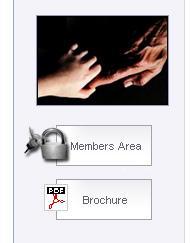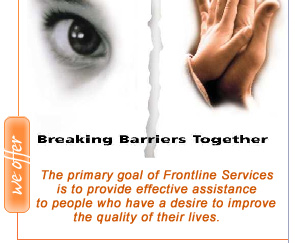Here
are some things you should expect from a behavioral consultant
working in the DD/MR field
* They have a bachelors,
master's or doctoral degree in applied behavior analysis, or in
a closely related discipline (e.g., psychology,
special education, human development)with an emphasis in applied
behavior analysis.
* They have supervised experience implementing behavior analysis
interventions for people with DD/MR.
* They follow the ethical
principles, these ethical guidelines require professionals to provide
only those services for which
they have the appropriate training and experience.
* They adhere to the Right to Effective Treatment
* Recommended
qualifications for professionals who direct and supervise applied
behavior analysis programming for children with
autism spectrum disorders are shown in the autism section of "www.behavior.org" (on
the internet), under Guidelines for Selecting Behavior Analysts.
* Other standards and requirements may be
applicable for third party reimbursement of behavioral consultation
services by private
insurers or government agencies, which could include supervision
or direct provision of all services by a licensed psychologist,
membership of the professional on a panel of approved providers,
and/or recognition by a state agency as a Medicaid or other specific
program provider. Well qualified providers may not be eligible
for third party payment of fees by particular agencies because
of closed provider panels or because they have not enrolled in
the required government program. These financial factors should
be discussed when arranging for services with a behavioral consultant.
When looking for a qualified behavioral consultant for a person
with mental retardation or other developmental disability, you
should feel comfortable asking for specific evidence of the consultant's
qualifications, and should expect to get a complete answer that
makes sense to you.
These are some practices you should expect from a behavioral consultant:
* They will observe the
person with DD/MR where the person lives, works, or goes to school,
at least a few times.
* They will develop a system
for collecting objective data about the skills and needs of the
person with DD/MR, and train caregivers
or teachers to implement it.
* They will conduct a functional
assessment or functional analysis of any problem behavior to determine
why the problem occurs.
* They will develop an intervention
plan, based on the functional assessment or analysis results, that
addresses the factors in the
person's physical and social environments that contribute to the
problem, and aims to change those factors. They will seek input
from caregivers and other professionals, where appropriate, in
developing the intervention plan.
* This plan should include
training to help the person with DD/MR develop appropriate and
useful skills (instead of using "problem
behavior" to get what they want), but may also include other
intervention procedures.
* They will directly train
caregivers or teachers to implement the intervention plan.
* They will observe the
people implementing the intervention and provide feedback.
* They will modify the plan as needed to ensure its continued
effectiveness, based on direct observational data.
* They will share data and
collaborate with other professionals involved in the case, such
as a psychiatrist if the person is receiving
medication for the problem behavior or related conditions, or a
psychologist who is conducting diagnostic assessments. They will
also share data with family members and caregivers, and seek consultation
from other professionals when needed.
* Some behavioral consultants will have a private practice, but
others may work for private or public programs or services. They
may provide services in schools, adult programs, community settings,
or homes.
Some aspects of consultation will vary depending upon
whether it is provided as a continuing part of on going service,
as an
intensive
treatment service, or as a service provided through a hospital,
private, or university group practice.
You should feel free to ask the consultant how they will help and
what processes they will use. If the consultant does not say they
will use the methods listed above, ask them why not. If they do
not have the training to use the procedures, that means you should
find a different consultant who has this training, experience and
skills (even if they have a license to practice psychology or an
impressive title).
We suggest that you do not use a consultant who focuses mainly
on reacting to "problem behavior," unless a crisis or
other particular circumstances warrant this focus. Focusing mainly
on reacting to "problem behavior" will not help prevent
it from happening in the future and does not represent current
best practice. In crisis situations or in the case of an escalating
behavior problem that requires immediate action, treatment should
address both immediate concerns and preventive strategies, such
as changing environments and teaching appropriate alternative skills.
In most other cases, the main focus of the behavioral consultation
should be on skill development.
|








